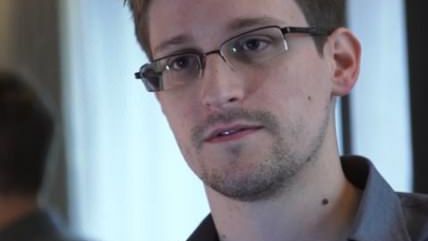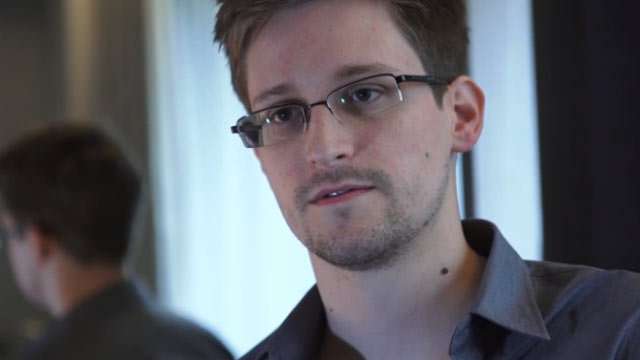Past NSA Whistleblowers Praise Snowden, Say They Tried and Failed With the Legal Route


Yesterday, the New Yorker's Jeffery Toobin took to the air to wag his jaw, repeating what he and others snoopy-state apologists have already said in print: Edward Snowden was no hero for exposing the National Security Agency's massive surveillance scheme because it's "legal" and because he had "legal options" as an alternative to revealing what he knew to the world. Interestingly. even as Toobin was shaking his finger at Snowden, USA Today published an interview with three of the whistleblower's predecessors who praised the man now taking refuge in Hong Kong and warned that they spent years trying those "legal options" — only to get dragged over the coals for their efforts.
In USA Today, Thomas Drake, William Binney and J. Kirk Wiebe described their efforts over the years to battle against a massive data collection system that had been unleashed against Americans at home as well as indiscriminate targets abroad. As Peter Eisler and Susan Page write:
For years, the three whistle-blowers had told anyone who would listen that the NSA collects huge swaths of communications data from U.S. citizens. They had spent decades in the top ranks of the agency, designing and managing the very data-collection systems they say have been turned against Americans. When they became convinced that fundamental constitutional rights were being violated, they complained first to their superiors, then to federal investigators, congressional oversight committees and, finally, to the news media.
To the intelligence community, the trio are villains who compromised what the government classifies as some of its most secret, crucial and successful initiatives. They have been investigated as criminals and forced to give up careers, reputations and friendships built over a lifetime.
So, how did those "legal options" work for them? According to Jesselyn Radack of the Government Accountability Project, who represents the three:
Jesselyn Radack: Not only did they go through multiple and all the proper internal channels and they failed, but more than that, it was turned against them. … The inspector general was the one who gave their names to the Justice Department for criminal prosecution under the Espionage Act. And they were all targets of a federal criminal investigation, and Tom ended up being prosecuted — and it was for blowing the whistle.
But … How could these intelligence professionals turn against a "legal" surveillance program that was approved by the executive branch and Congress and supported by the courts?
Thomas Drake: He's an American who has been exposed to some incredible information regarding the deepest secrets of the United States government. And we are seeing the initial outlines and contours of a very systemic, very broad, a Leviathan surveillance state and much of it is in violation of the fundamental basis for our own country — in fact, the very reason we even had our own American Revolution. And the Fourth Amendment for all intents and purposes was revoked after 9/11. …
He is by all definitions a classic whistle-blower and by all definitions he exposed information in the public interest. We're now finally having the debate that we've never had since 9/11.
Of the three whistleblowers, Binney takes the least sympathetic stance toward Snowden, saying "certainly he performed a really great public service to begin with by exposing these programs and making the government in a sense publicly accountable," but warns that by exposing surveillance targeted at China, "he is transitioning from whistle-blower to a traitor." Be Binney believes Snowden should be prosecuted only after "the previous administration, the president and vice president … all the chiefs and deputies of the NSA … all the people on the intelligence committees that approved this."
Radack makes a good point about the question of whether Snowden is a "hero" or a "traitor," saying, "I don't like these labels, and they are putting people into categories of two extremes, villain or saint. … By law, he fits the legal definition of a whistle-blower." Well said. Why does a whistleblower have to be of pristine character and make only perfect judgments along the way if what matters is the abuses he or she has exposed?
I'll also add that I'm not impressed by the chorus saying Snowden would have engaged in proper civil disobedience only if he'd remained at home and slipped his own head in the noose after making his disclosures. That's a position that works only to the benefit of the hangman, except in cases of mass disobedience, which have a chance of overwhelming the police and courts and further gumming up the works. As an army of one, Snowden could have expected little more than a Silverado-style "fair trial followed by a first-class hanging," mostly carried out in secret, no doubt.
I hope Snowden doesn't defect to China. But, now that he's done his good deed, it's time for him watch out for his own ass.
And it''s time for us to decide what to do about "the previous administration, the president and vice president … all the chiefs and deputies of the NSA … all the people on the intelligence committees that approved this" so we can cut down the monster they've created.
Toobin should feel free to wag his finger some more as we dismantle that legal system and punish its creators.
See the USA Today video interview below:


Show Comments (79)